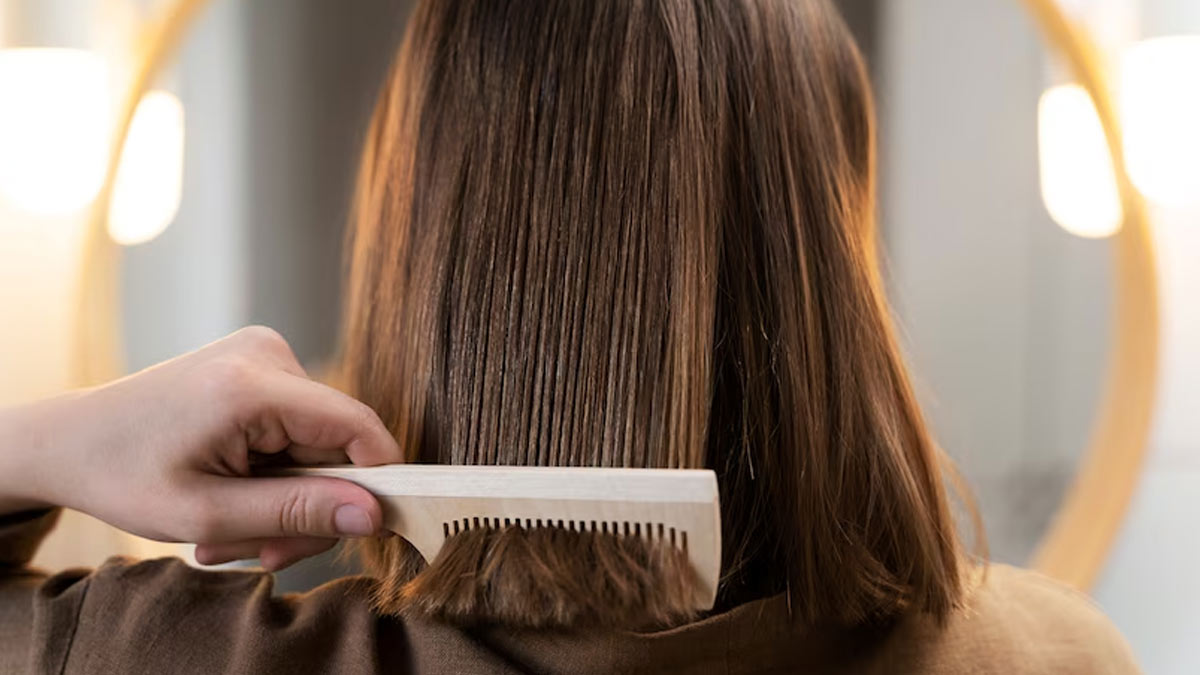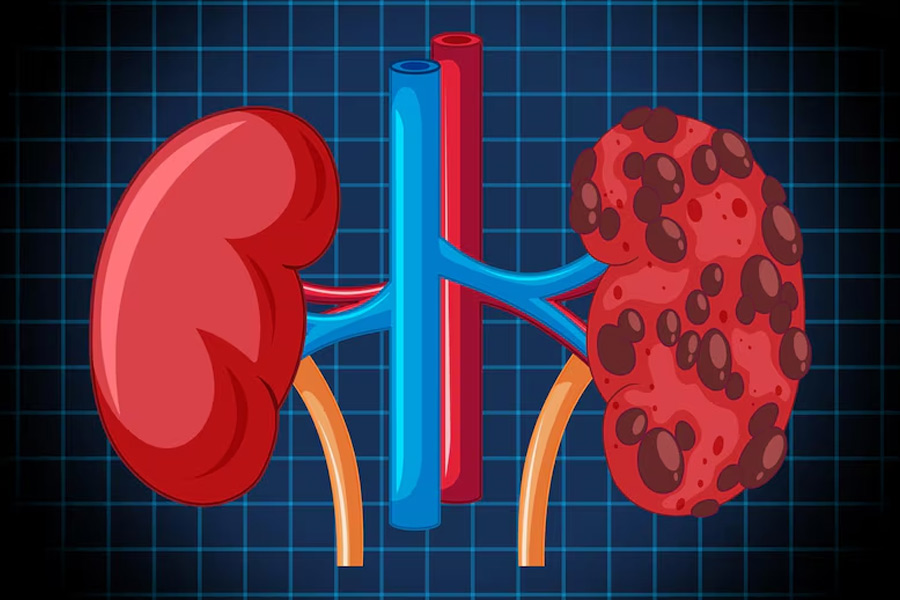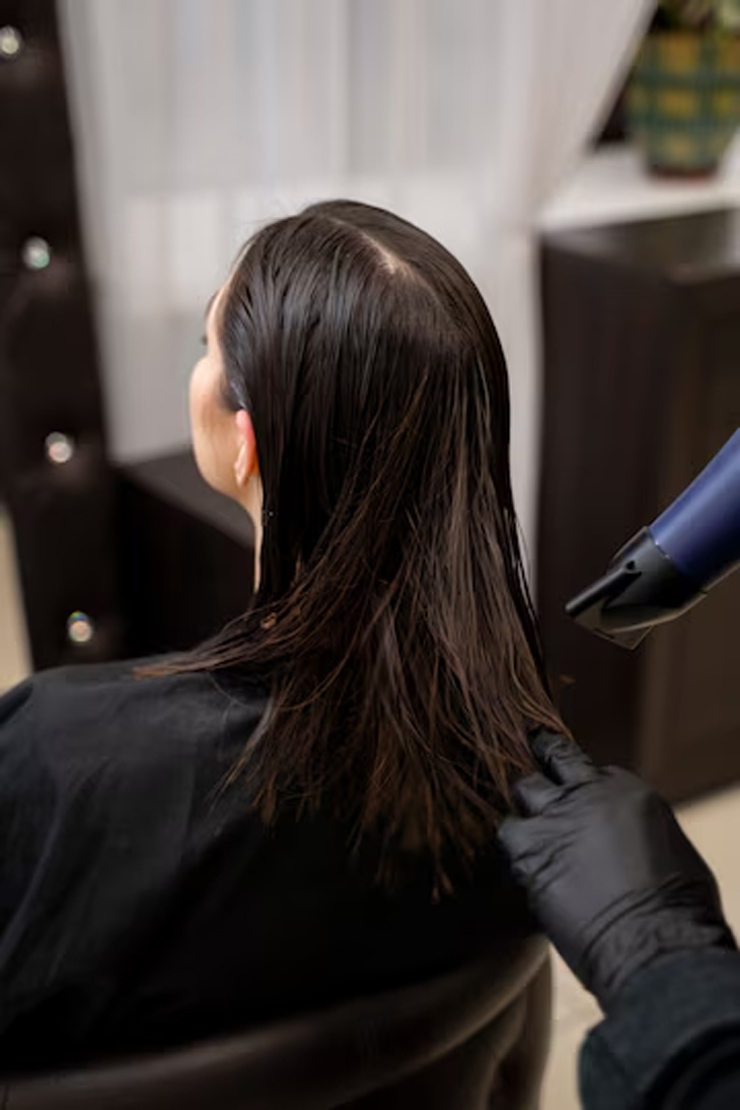
Keratin hair treatments, are popularised ability to give hair a sleek, smooth finish, have gained immense popularity. But as with many beauty solutions, concerns about the potential health risks of keratin treatments have come to light—particularly related to kidney health.
Table of Content:-
To understand this, OnlyMyHealth team interacted with Dr Stuti Khare Shukla, MD Dermatologist, Founder — Elements of Aesthetics, Hair Growth Queen of India, Founder — FDA-Approved Hair Growth Booster.
The Chemical Concerns
Keratin treatments often rely on chemicals like formaldehyde to break and reseal the hair’s natural bonds, effectively straightening it. Formaldehyde, however, is a known irritant and carcinogen, meaning it has both immediate and long-term risks to human health. Dr Shukla explains, "Keratin hair treatments have gained widespread popularity for their ability to smooth and straighten hair, but growing concerns about their health risks, particularly kidney damage, have surfaced." The primary chemicals in these products, such as glycolic acids and glyoxylic acids, are used in significant quantities and, when combined with formaldehyde, can strain kidney health with repeated exposure.
Also read: Shea Butter For Hair: Here Are Its Benefits And How To Make Your Natural Treatment
The Impact on Kidney Health

Our kidneys serve as the body’s filtration system, processing toxins and expelling waste from the bloodstream. Chronic exposure to formaldehyde poses risks beyond just superficial irritation; it can lead to systemic toxicity if inhaled or absorbed through the skin repeatedly. "The kidneys filter toxins from the body, and chronic exposure to formaldehyde can put them under substantial strain," Dr Shukla points out. "When formaldehyde is inhaled or absorbed via the skin, it enters the bloodstream and can collect in organs like the kidneys, potentially causing inflammation and impairing their capacity to function correctly." The accumulation of these chemicals could theoretically lead to inflammation within the kidneys, eventually impacting their functional abilities if not monitored or if treatments are performed frequently.
Formaldehyde is recognised for its irritating effects on the respiratory system and its potential to increase cancer risk. A study by the American Cancer Society calls formaldehyde carcinogenic to humans by the inhalation route of exposure.
Although definitive evidence linking keratin treatments specifically to kidney damage is lacking, the general health risks associated with formaldehyde exposure are well documented, particularly for salon workers or individuals who undergo these treatments often.
Also read: DIY Hair Masks: Try These Masks To Achieve Frizz-Free, Shiny Hair Before Karwa Chauth
Exploring Safer Alternatives

With these risks in mind, Dr Shukla suggests exploring safer alternatives that can offer similar results without relying on harsh chemicals. "Given these risks, it's important to consider safer alternatives. Treatments like hair botox, which uses natural ingredients like vitamins and proteins, or hydrating hair spas, can offer similar results without exposing the body to harmful chemicals," she advises. Hair botox, for instance, uses natural ingredients, such as proteins and vitamins, to deeply condition and smooth the hair without the need for harmful chemicals like formaldehyde. Hydrating hair spa treatments are another chemical-free option that focuses on nourishing and repairing hair from within.
Conclusion
As the beauty industry evolves, so do the options for hair care treatments. However, balancing beauty goals with health considerations is essential. Dr Shukla emphasises, "Consulting with a dermatologist and understanding the ingredients used in hair treatments is essential for balancing beauty with long-term health." For those who love the smooth, glossy effects of keratin treatments, it’s crucial to be informed and selective, especially when there are effective and safer alternatives available.
Also watch this video
How we keep this article up to date:
We work with experts and keep a close eye on the latest in health and wellness. Whenever there is a new research or helpful information, we update our articles with accurate and useful advice.
Current Version
